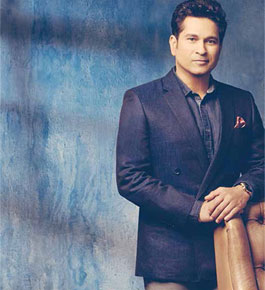
There is no need for an engineering professor to teach engineering students, a cricketer can do, provided he is a master blaster. A four-member student team from College of Engineering, Anna University, bolted together an engine and transmission unit and mated it to a soon-to-be-released X3 body at company’s main assembly line, as a part of the programme by none other than cricketer Sachin Tendulkar, the event was organised at the BMW factory in Mahindra World City, in Chennai. The brand ambassador of the German luxury car manufacturer BMW, Tendulkar, said the distribution of engines and transmission units to technical institutions will give the students an opportunity to go beyond book learning. Just reading technology books without hands-on training will be the equal of ‘me playing book cricket,’ he quipped. BMW Group India will distribute 365 engines and transmission units free to engineering and technical institutes across the country to help students get hands-on training in modern automobile technology. Recalling the genesis of the idea, Tendulkar, thanked Bharti AXA General Insurance which was part of the initiative. Under the initiative, the luxury car manufacturer would provide 365 BMW engines and transmissions to various engineering and technical institutes across the country ‘free of cost’. The four-cylinder, two litre engines and 8-speed transmissions are modern units that power six locally produced BMW vehicles. Among the institution they will go to are 100 engineering colleges, 125 it is, 60 polytechnics and 10 automotive skill development centres. Talking on the occasion, Tendulkar said, “Skill Next is a vision which we are extremely passionate about.”
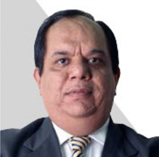
Vijay Sethi, replaces Sanjay Jorapur has moved on from Hero MotoCorp, where he was working as chief human resource officer since September, 2014. Sethi has more than 25 years of experience in the manufacturing and consulting space. He joined Hero MotoCorp in 2007, prior to which he has worked with Ranbaxy and TCS. He holds a master’s degree in industrial engineering, an MBA in materials management and a bachelor’s degree in mechanical engineering. Apart from this, he has attended leadership programmes organised by leading global institutes, including Harvard Business School and Indian School of Business. Sethi also has a number of certifications in various areas of management and IT. Jorapur was instrumental in driving HR processes across through digitisation at Hero MotoCorp. He has also implemented an HR operating model to create best-in-class HR capabilities to support a global organisation.
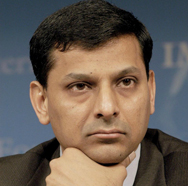
Raghuram Rajan, the celebrated economist and former governor of RBI, not on Twitter? He answered that question while delivering a keynote address at Future, a conference organised by the Kerala government. Rajan joked that he is not on social media because he doesn’t have the ability to think quickly and respond in 20- 30 seconds in 140 characters. Makes sense, doesn’t it? And also saves Rajan from all the trolls and social media experts who would probably claim that they know better than him in matters of economics. Asked why he is not on Twitter, this is what he gave as his reason. “I don’t have time. My sense is that in many of these things once you start engaging, you have to be consistent and I certainly can’t because I don’t have the ability to think quickly and respond in, you know, 20-30 seconds in 140 characters”. Although Twitter has raised the character limit to 280, the idea that it is possible to communicate to the world in a couple of sentences at a time may not be appealing to people who like nuanced and more thoughtful conversations.

Carl Orstadius has been appointed Managing Director of SKF India Ltd. According to the Board of Directors of the Company, the appointment came into effect from April 1, this year. “We are delighted to have Mr. Carl Orstadius joining as the MD of SKF India Limited. He has nearly three decades of global experience with the SKF Group. He has a strong track record of executing business turnarounds and managing very successful Product and Business Development. I am confident that Mr. Orstadius will further lead our company in growing and delivering value to our stakeholders,” said Rakesh Makhija, Chairman of the Board, commenting on the move. A Master of Business Administration from the University of Gothenburg, Sweden, Orstadius has been associated with the SKF Group since 1987 and has held several leading positions in the past with the group. The 56-year-old Orstadius has been with the Automotive & Aero Business segment of SKF Group at Gothenburg, Sweden. He has also been in charge of Supply Chain, Investments and Integrated Cost Reductions and in the past three years, has been the driver behind improvement in the operating margins of the Global Automotive business for SKF.
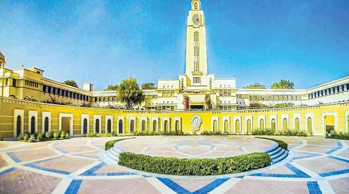
In an attempt to boost the skills of its employees, Samsung India has joined hands with the engineering institute, BITS Pilani, to facilitate advanced learning for its employees at the Samsung R&D Institute India-Noida (SRI-Noida). The programme will be fully sponsored by Samsung and is intended to offer employees an opportunity to synergise theory with practice on a sustained basis, and to enhance their academic qualification. As part of the initiative, SRI-Noida employees can pursue M.Tech in software systems to further upgrade their skills. The course, consisting of three semesters of theory, work and one semester of dissertation, is designed to offer skills that are in alignment with SRI-Noida’s focus on niche areas, such as machine learning, cloud computing, data mining, data structure and algorithms design and artificial intelligence. This will enhance the technical knowledge of employees, while giving them a career development opportunity. Throwing more light on the move, Dr Seounghoon Oh, managing director, Samsung R&D Institute India- Noida says, “As technology evolves, skill-sets must evolve too, especially for a company such as Samsung that is focused on the next level of innovation. This MoU is in line with our vision to develop futuristic skill-sets aligned to the requirements of the fastevolving mobile and consumer electronics sectors. Through these strategic partnerships, we aim to deliver the best training and skill development to our employees, and thereby accelerate our ‘Make for India’ initiative.”
Praveer Sinha takes charge as the Tata Power’s new chief executive officer (CEO) and managing director with effect from May 1, 2018 to oversee the next phase of expansion. Sinha is currently the CEO & managing director of Tata Power Delhi Distribution Limited (Tata Power-DDL), a public-private partnership between Tata Power and Delhi government, supplying power to over seven million people in North and North-West Delhi. N. Chandrasekaran, Chairman, Tata Power while commenting on the move, said, “Praveer’s extensive experience in the power sector and his ability to drive performance, maximise returns and work seamlessly with stakeholders will be very valuable for Tata Power as it looks to strengthen and expand its position in the fast-evolving energy market.” With over three decades of experience under his belt, Sinha has been in the power sector and spearheaded transforming the power distribution sector and development and setting up of green-field and brown field power plants in India and abroad. “Tata Power is among the oldest and most iconic companies in the Tata group and it is my privilege to lead such an institution. I look forward to working with all our stakeholders and employees to take this company on its next stage of growth,” said Sinha on his new assignment.

She is just not an actor but an environmentalist too. Juhi Chawla takes charge as the brand ambassador for the Government of India for a women’s empowerment project. The actress will be the face of the Women’s Organic Festival of India. Juhi who owns two farms on the outskirts of Mumbai, says she couldn’t be happier to take on this new role. “The idea is to create awareness about this organic festival happening in Mumbai for the first time. I’m taking my duties further and using my friendships and contacts to invite people who are interested in organic farming. We have organic produce coming from all over India, from as far as Leh-Ladakh and Kanyakumari, from Kohima and Kutch. The aim is to whip up nostalgia for the small markets of the ’70 and ’80s,” said the actor. A proud farmer herself, Juhi loves working in her field whenever she finds the time. “Twenty years ago, when my father was close to retirement, he bought land in Wada, outside Mumbai, on the banks of the Vaitarna river. He would travel there often to develop his farm. I barely visited then, being busy with my films and shoots. But when he passed away ten years ago, it became my responsibility to look after the land,” she reminisces.
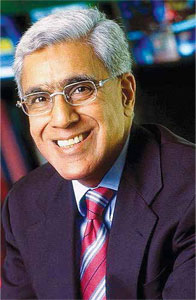
Karan Thapar asked while accepting the G.K. Reddy Memorial National Award for Journalism at Teen Murti Bhavan in New Delhi recently, ‘Is there a channel India can be truly proud of just as the British are justifiably proud of the BBC or the Americans of CNN?’ and answered, “There are some channels I’m proud of some of the time, some programmes I’m proud of most of the time but there are also a few channels and programmes that make me cringe all the time. Whilst there are newspapers that I would unreservedly applaud, I’m afraid there isn’t a single channel I can say that of without biting my tongue because I know I’m fibbing. Television did not exist in G K Reddy’s day and it was Doordarshan that was the plaything of our rulers and rightly reviled. But, today there are over 500 independent news channels and Mr Reddy might perhaps be flabbergasted at the number.” First, the reputation the media once enjoyed for reliability, balance and accuracy has suffered. Today you often hear the put-down that just because it’s in a newspaper doesn’t mean it’s true. Social media may have spawned fake news but the fact people rely on Twitter or WhatsApp to find out what’s happened suggests they no longer trust a paper or news channel to tell them the truth or the full story. “Connected to this is the claim the media could once make of being objective and fair. Few people are prepared to believe that today. Without doublechecking or giving a person a right of reply and often without knowing the full story the media judges individuals and finds them at fault. I don’t deny there are occasions when we’re right but every time we’re wrong we condemn an innocent person and leave him with little opportunity to correct the prejudiced image we’ve created,” he said.
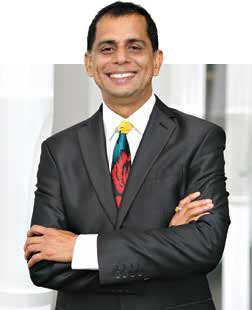
India’s largest telecom company is seeing several changes on the top deck, one of which will be Balesh Sharma, currently chief operating officer of Vodafone India, becoming the CEO of Vodafone Group Plc and Idea Cellular. Sharma will be responsible for the combined business strategy and execution as well as driving integration, according to a statement from Vodafone. Akshaya Moondra, currently chief financial officer at Idea, will head the finance function of the merged entity. Ambrish Jain, currently deputy managing director at Idea, will be the chief operating officer (COO) of the merged entity. This is in line with the original merger announcement of 20 March 2017, which said that the management team of the combined business would be confirmed prior to closing. The joint enterprise of Vodafone and Idea Cellular, currently country’s number two and number three telecom companies, respectively, would unseat Bharti Airtel to grab the top slot. Kumar Mangalam Birla will be the non-executive chairman of the merged company. A non-executive chairman is entrusted with no operational responsibilities but only enjoys board responsibilities, said Vodafone. The company unveiled the leadership team that will manage the company being created after merging the British telecom operator’s India unit and the Aditya Birla Group’s mobile-phone arm. While Sharma takes over as the new chief executive, Idea finance chief Akshaya Moondra will be the chief financial officer of the merged company, the two companies said in a statement.
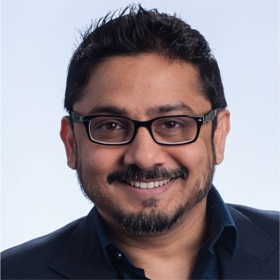
Unmesh Pawar ends his innings as the global HR head for Accenture’s products operating group. Pawar’s last day at Accenture was at the end of the financial year (March 31, 2018). In his Facebook post, Pawar quoted, “My next big adventure am sure is lurking somewhere around the corner. In the interim, I will continue to use my learnings to coach leaders, start-ups and enable corporates to build their human capital capabilities.” Pawar has been associated with Accenture for 17 years, where he joined as general manager HR, when it had only 70,000 employees globally. In the last 17 years, he has made it to 435k people across 200 cities. He was responsible for businesses building differentiated capabilities in the marketplace by designing and deploying complex talent strategies, acquisition and talent management practices on a global scale. He had the overall responsibility for designing and deploying Accenture’s talent acquisition strategy to meet the talent growth needs for all businesses globally across the 59 countries. In this role, he partnered with senior business runners, HR leaders and his teams to deploy fit-for-purpose, innovative market-leading talent acquisition interventions. For five years (2009-2014), Pawar served as managing director-HR for the Accenture operations growth platform. In this role, he led talent transformation to build differentiated market capabilities for the business with strong industry focus, whilst ensuring an all-time high employee engagement, retention and consistently being voted an ‘employer of choice’ in the industry.
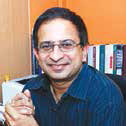
There is a deep sense of accomplishment in finding meaning in what you do and being rewarded for the same, and it is this philosophy that forms the basis of the Sulekha Way of Working. This involves leaders having open, honest, frequent and constructive coaching dialogues with their team members on the ‘how’ aspect of performance. Explaining the idea behind Sulekha WoW, Satya Prabhakar, CEO, president, Sulekha says, “When we started thinking about these awards, we realised that it is not just an award but an integral part of the culture and defines our way of working.” The Sulekha WoW dimensions provide a guiding framework to employees— one that acts as a navigating compass, a GPS, helping the managers to take these value-adding coaching conversations, leading to development and growth across levels. The five dimensions of Sulekha WoW are, competence, commitment, collaboration, customer focus and leadership. “While every contributor shines in one dimension or perhaps two, they do bring all these dimensions into focus in delivering a remarkable job, every single day,” is how Param Parameswaran, chairman of the company explains.
by Joe Williams